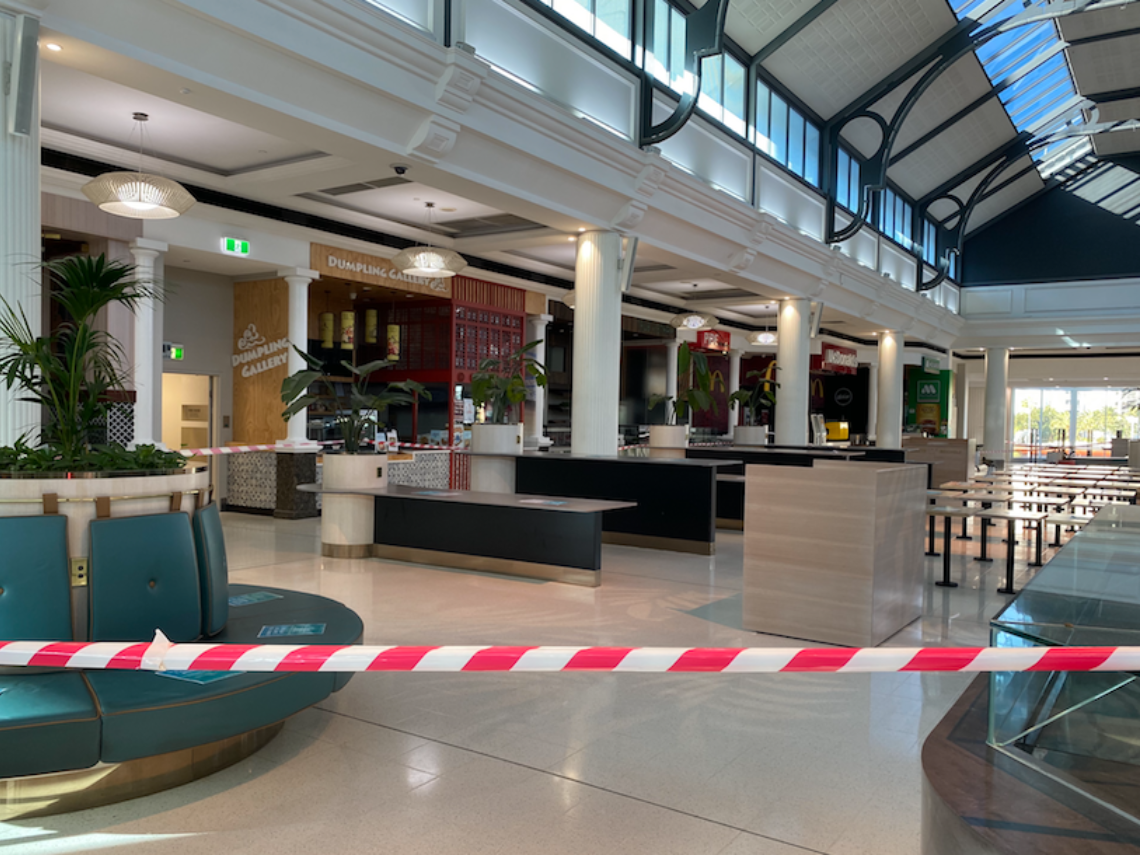April 22, 2020
Why I don't trust major shopping centres on rent in covid-19
After taking advantage of their position in an imbalance of power for too long, shopping centre landlords have made their beds, now they'll need to lie in it.
But, at what cost to tenants?
The significant power imbalance that shopping centre landlords have wielded and leveraged over there smaller retail tenants in particular, means that for many, they can't be trusted to do the right thing during this covid-19 crisis.
I really do hope I am wrong, and they surprise and have a laser-like focus on the profitability of their retailers big AND small going forward.
I believe they have shown a prevalence to leveraging the power imbalance to such an extent, that their conduct now and going forward needs to be put under even greater scrutiny.
This is a re-set opportunity for tenants in particular, to tip the balance back to resemble something more like a fairer position.
It needs to be more about profitability and ROI
I've had a unique vantage point to observe, understand, and be opinionated on this dynamic. I've had extensive experience negotiating and working with landlords in my previous senior executive franchise positions, and now as a commentator tapping into everyday market feedback.
Retail leasing executives, and shopping centre landlords are not all 'bad'. To claim that would be both untrue and unfair. However, the broad and accepted actions of the industry I believe, often mean it ignores the every day profitability and ROI considerations of the individual business owners within the centres, especially the smaller operators.
But, as far as I can tell, they don't see it like that at all. I often feel that leasing executives, particularly in the bigger centres, are 'drinking the Kool-Aid' when it comes to their value proposition versus cost and conditions they impose on smaller retailers, making it harder for them to maintain a profitable business.
Four key areas I've seen that demonstrate why I don't trust major shopping centres to do the right thing in and out of this crisis.

1.Unsustainable, unprofitable rent costs.
Landlords leveraging the power imbalance is most prevalent here. Put simply, rent costs and increases have outstripped growth in sales across the centres by a long way.
The view that there is someone else always able to take a tenants place due to a supply and demand case, always put a tenant (particularly smaller ones) in a vulnerable position. This crisis is going to visibly tip that leverage on its head - not before time.
In fact, Peter Buckingham's report 'Shopping Centres - still an Inconvenient Truth (revisIted in 2019), highlights that of the 69 largest shopping centres in the country, their growth in sales per square metre 2012 - 2019 averaged -.04%!
Yet, all the while, 4-5% annual rent increases to tenants within the centres has remained pretty much the 'standard'.
See more on this data HERE on the Shopping Centre Rent Conspiracy
2. Unreasonable shop fit out expectations and costs
This is a hidden imposition that many external to the industry would not understand. On taking a lease, or renewing one within a shopping centre, you then also have to appease the shopping centre designers on what your store looks like and how it's built. This comes down to the most minute details.
With the stroke of a pen, a designer can add thousands of $ of extra costs to the build costs of a store, to fit in with their design palette or vision. Extra costs that often arguably add nothing to the ability of that tenant to make more sales.
The issue of shop fit and larger shopping centre demands in particular, are often a massive pressure point for retailers.
3. Dramatic changes to the shopping centre mix to the detriment of many tenants - with no rent consideration
The mix of tenants in a shopping centre is important to ensure it appeals to a wide enough audience to attract the customer traffic the retailers need to be profitable. This needs to change over time in order to respond to the marketplace trends. However, we've seen more recently centres doing this to the detriment of the existing tenants within it.
Food retailers are a key example of this, as shopping centres, seeing the need to shift to experiences with online purchases growing, have surged their food provider numbers. Surging food providers AKA competition to existing providers, needed to be closely connected to the tempering of their occupancy costs.
The example of Luke Baylis, the founder of Sumo Salad, was most prominent in highlighting this issue over recent years. He stated on SmartCompany in 2017 that starting in 2003 the business had to content with around 14% of food retailers in shopping centres, with that increasing to aiming for 50% by 2017. Corresponding rent reductions in line with a spike in competition was not forthcoming.
4. Stuffing shopping centres with interfering casual leasing retailers
We all see this on our visits to shopping centres, but we probably don't think of it at the time from the perspective of a permanent and fully-invested tenant.
Think about how you'd feel after taking the risk and investing hundreds of thousands of $ into a business in a shopping centre for your spot that is 'yours'. Then watch potential customers give a wide berth to your shopfront entry as the annoying people who paid for 5 square metres for a few weeks, take a spot out the front. They put up there time share or raffle tickets banner, and proposition anyone who looks in your direction - as they are standing in front of your entry or window display.
Or, how's this? An example I saw a little while ago in a shopping centre that already had two Donut Kings and a Krispy Kreme. An independent donut only operator sets up a flimsy plywood short term leasing spot for a few weeks selling boxed donuts. Placed in a spot placed strategically, equally distanced between the other donut focused selling stores.
Some say 'that's just competition' - I say, that's irresponsible leasing.
My hope is that this re-set opportunity being provided to many smaller retail tenants in particular, will result in a far fairer market for them to operate in outside this crisis.
Of course, the fear is, how many will be left...?


















